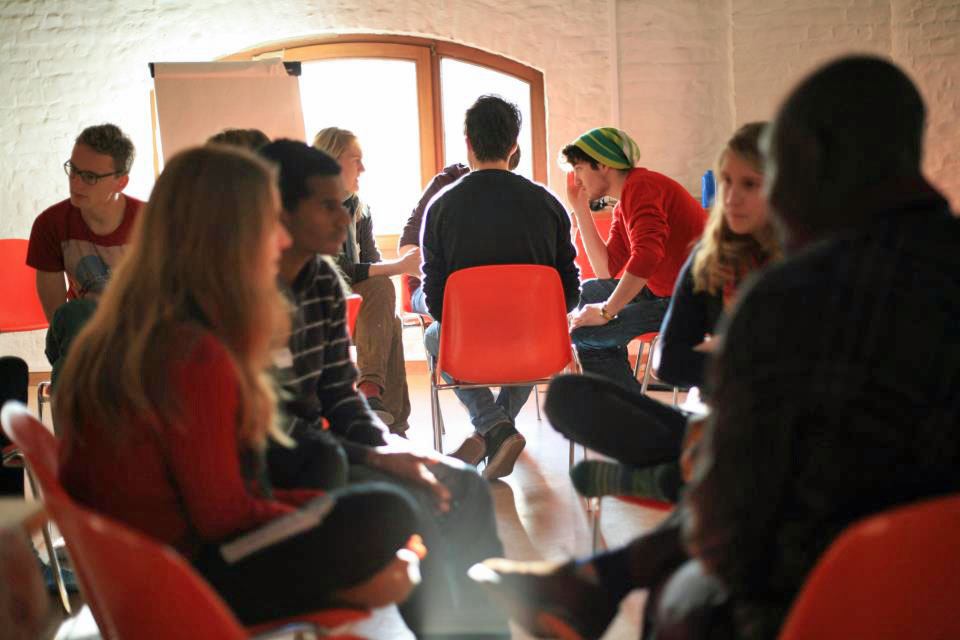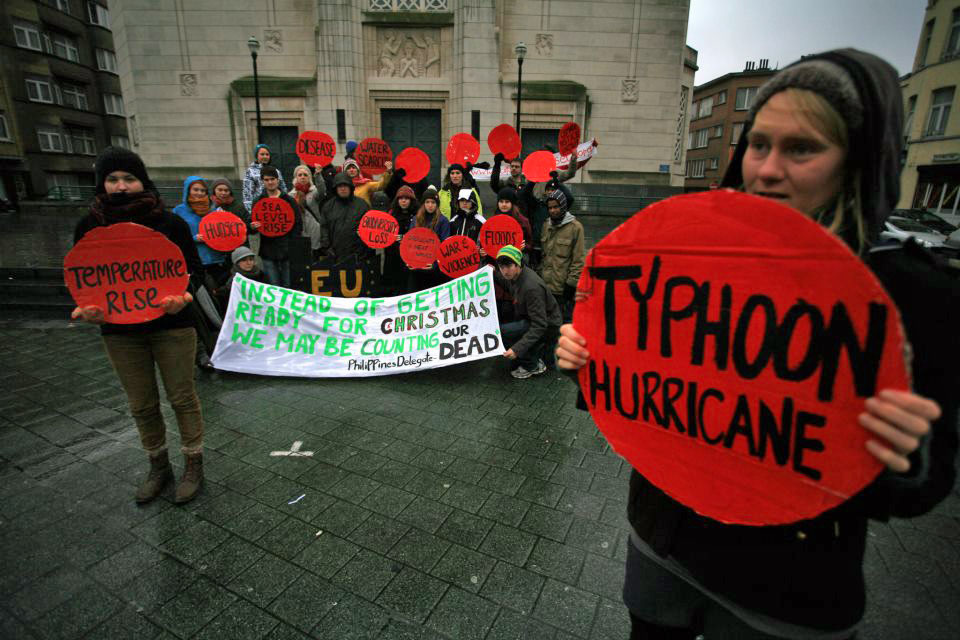As governments from around the world meet in Lima for the annual UN climate talks (known as COP20) from December 1st to 12th, 50 youth climate activists from 12 European countries are gathering in Brussels to share knowledge, lay down their demands for climate justice, mobilise for action in the run-up to next year’s crucial climate talks in Paris, and build the European climate justice movement.
Between December 6th and 13th we plan to:
- follow the negotiations as they unfold in Lima, Peru, and link up live with civil society and social movements
- share skills and learn about climate justice
- act in solidarity to put pressure on government delegations and institutions
- learn about our different regional struggles
- plan for 2015 and beyond: a crucial year for the climate movement as we build up towards the climate negotiations in Paris in December 2015, when a global binding agreement is (expected?) to be reached
- get to know each other and our diverse backgrounds (Macedonia, Bosnia & Herzegovina, Croatia, Hungary, Sweden, Germany, France, Belgium, Netherlands, Ireland, UK, Poland.)
What does this look like in practice? Check out our gallery of photos from the 2012 Qatar in Brussels event, and the video from Durban in Brussels from 2011.
Why “Lima in Brussels”
Last year civil society and social movements walked out on the unjust and corporate captured climate talks in Warsaw (COP19), but by stating “volveremos” – we will be back – they promised to go back home, mobilise and return stronger than ever before. This year in June, a symbolic return was staged at the UN climate Intersessionals in Bonn. The mobilisations continued towards the Social preCOP in Venezuela and UN climate talks in Lima. The required systemic change will only happen through a broad activist movement which exerts real pressure on polluting corporations and governments who subsidise or condone their actions. A crucial element of this work is building coalitions and connections with other social justice movements (workers, farmers, Indigenous peoples, women, youth, etc.). And this is what “Lima in Brussels” is all about.

We will be calling on the EU and other rich developed countries in Lima to:
1. Say NO to business as usual.
2. Say NO to false solutions to the climate crisis: no to nuclear, no to shale gas, no to CCS (Carbon Capture and Storage), no to large scale hydropower, no to agrofuels, no to offsetting, no to carbon trading, no to industrial system of farming and new technologies – modern bio-technology used for the production of genetically modified crops – no to “climate-smart” agriculture, no to market-based forest conservation systems (REDD), no to geoengineering.
3. Bring forth real solutions like: keeping fossil fuels in the ground, investing in renewable energy systems owned and operated by communities, energy efficiency and savings, sustainable models of farming based on agroecology. Promote the benefits of a real systematic transition towards a sustainable and renewable model: job creation, restoring democracy, community power – decentralisation of energy systems which are now mostly in the hands of big corporations – energy sovereignty, improved air quality and health, a better quality of life.
4. For the EU to put forward higher and more effective targets for reducing Greenhouse Gas (GHG) emissions in the 2030 energy and climate package, binding targets for increased energy efficiency and savings, and binding renewables targets.
5. Put climate justice on the agenda – justice for poor countries in the Global South, a fair distribution of wealth and accepting the historical responsibility of the North.
Developed countries need to live up to their responsibility for climate impacts in the Global South, and do their fair share in mitigation, adaptation and finance.
6. End the dominance of the financial sector and especially fossil fuel business lobbies at all levels of the legislative process; avoid conflicts of interests and stand up for democracy and not big business. The strong presence and lobbying of the dirty business sector, who are trying to keep fossil fuels and false solutions on the table at the UN climate talks, is completely unacceptable.
7. Put people first and not profit, by supporting citizens’ right to information, transparency, and participatory democracy by getting people involved in all stages of the decision-making process regarding climate legislation.
8. Stop the increasing criminalisation of social protests!

How you can follow “Lima in Brussels”
“Lima in Brussels” tumblr
The Young Friends of the Earth Europe website, Facebook, Twitter and Flickr
Using the following hashtags on Twitter: #LimainBrussels #COP20 #COP20Lima #UNFCCC #climatejustice
How to follow the negotiations in Lima
Policy:
UNFCCC website (for live streams and news), Facebook and Twitter
COP20 Facebook and Twitter
Civil society:
FoE International website, Facebook, Twitter
FoE Europe website, Facebook, Twitter
Earth in Brackets website and Twitter
Climate-Justice.info Twitter

